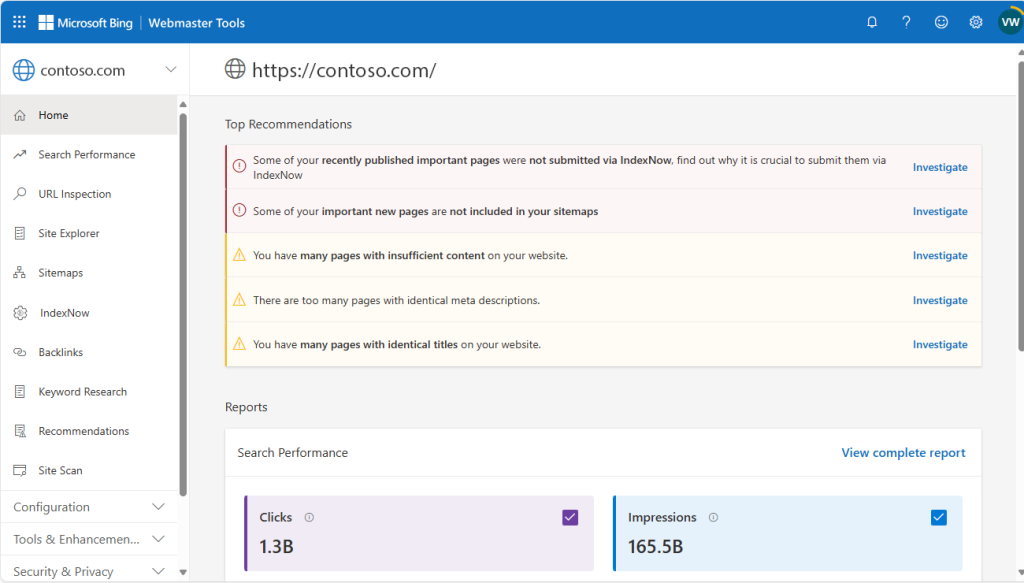
After a relatively quiet week last week, this week seems to be a busy week with Google’s announcement of a new leadership, Microsoft’s feature announcements, Semrush’s acquisition of Search Engine Land, and more.
Read all about them in our weekly news roundup below:
Google’s CEO, Sundar Pichai, announced that Prabhakar Raghavan, the company’s Knowledge and Information lead will be replaced by Nick Fox, a longtime Google executive and member of Raghavan’s leadership team.
Prabhakar Raghavan will take on the role of Chief Technologist, still reporting under Pichai.
Pichai wrote:
Prabhakar has decided it’s time to make a big leap in his own career. After 12 years leading teams across Google, he’ll return to his computer science roots and take on the role of Chief Technologist, Google. In this role, he’ll partner closely with me and Google leads to provide technical direction and leadership and grow our culture of tech excellence.
Over the past few years, Nick has been instrumental in shaping Google’s AI product roadmap and collaborating closely with Prabhakar and his leadership team on K&I’s strategy. And throughout his career, Nick has demonstrated leadership across nearly every facet of K&I, from Product and Design in Search and Assistant, to our Shopping, Travel, and Payments products. He was also a pioneering leader in Ads, where he helped establish a rigorous quality and user-focused approach that remains key to our success. Nick has launched innovative consumer products like Google Fi and spearheaded complex initiatives such as RCS messaging. I frequently turn to Nick to tackle our most challenging product questions and he consistently delivers progress with tenacity, speed, and optimism.
The Google Knowledge and Information division includes Search, Ads, Geo, and Commerce products.
Read the announcement here.
Semrush has acquired Third Door Media, the parent company of Search Engine Land, Martech, Search Marketing Expo, and Digital Marketing Depot.
The press release for the acquisition states:
This acquisition marks a significant milestone for the industry, bringing together two leaders in the digital marketing and SEO sector. Marketers will now have greater access to resources and insights that will enhance their strategies and business outcomes. Integrating Third Door Media’s assets into Semrush’s ecosystem is expected to deliver unparalleled value and innovation to brands and marketers.
Search Engine Land adds that their mission to inform and educate on the latest developments in search marketing remains the same. They will continue to cover the latest breaking news, share insights, analyze the latest trends, and provide helpful content.
Search marketing has been a community since the profession began. Search Engine Land and Semrush have been supporting the profession with tools and content for nearly 20 years. Combining the resources of the two organizations will enhance their ability to serve the community.
The missions of helping marketers do their job better are aligned. Search Engine Land has done it with news and actionable advice, while Semrush provides the tools and education needed to implement much of that advice.
The CEO of Microsoft AI, Mustafa Suleyman, posted in X that the Bing team has “unshipped” 27 features from Bing. He states that simplicity is one of the core principles he is focused on and being brave enough to undo complexity is important.

This seems to be different from all the other search engines and generative AI that adds more and more features. As to what features were removed, they were not specified.
Bing announced that they are evolving their “Insights” feature into a more comprehensive and powerful tool called “Recommendations”. With recommendations, users can expect personalized and actionable insights that help optimize their site for maximum visibility and performance.

They state that the transition from Insights to Recommendations is not merely a rebranding effort but a significant upgrade in functionality and depth. It aims to provide webmasters with even more detailed analytics and actionable recommendations, making it an indispensable resource for digital marketers and SEO professionals.
The key benefits include:
It was also announced that they are extending their search performance data from 6 months to 16 months, giving users the capability to look at long-term trends, see how past strategies worked, plan for future growth, and make better decisions to fix traffic drops.

Benefits for Webmasters and Marketers:
One of the common questions in Google Office Hours episodes has to do with international websites, sites in different language versions, hreflang, etc. In this week’s SEO Made Easy episode, Martin Splitt of the Google Search Team provides three essential tips for creating and managing websites for diverse language and regional audiences.
First tip is to think about the right way to set up your site for internationalization. The most common and recommended way are the use local top level domains like .de, .it, etc. or the use of subdomains or subdirectories. Each come with their own pros and cons so it make sure to pick which works best for you.
Second tip is the use of hreflang. Hreflang helps Google and other search engines link the different versions of a page for different countries and make sure they are serving the right version to the users. It can be implemented via HTML tags, HTTP headers, or in an XML sitemap. When using hreflang, make sure the attributes you use are valid. Use valid country code variations and make sure that all variations link to each other. Make sure to also include a self-referential link to the other versions.
Lastly, let the users know about these versions and link to them. Do not assume or forcefully redirect your users to a specific version. By linking to different language or country versions, the users are given a choice. It helps Googlebot and others discover the other versions as well.
Splitt’s personal tip is to not overdo internalization. Only pick locales and countries that matter to you and you are willing to support properly. Instead of lackluster translated pages, make sure you have content that is useful to the different audiences in the countries you care about, and make sure they have a great experience for each of your language variations.
Check out the episode below: